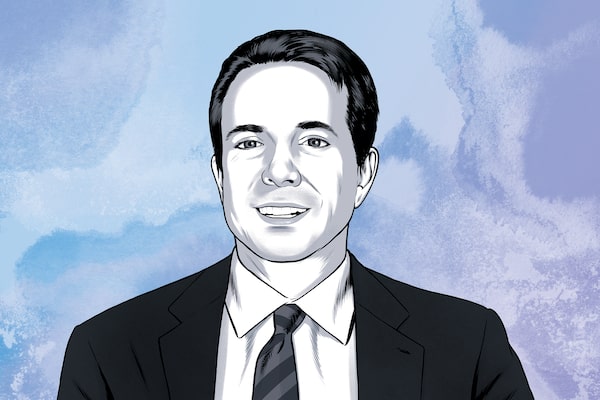
Jerome Hass, partner and portfolio manager at Lightwater Partners Ltd.The Globe and Mail
Sign up for the Globe Advisor weekly newsletter for professional financial advisors on our sign-up page. Get exclusive investment industry news and insights, the week’s top headlines, and what you and your clients need to know. For more from Globe Advisor, visit our homepage.
Money manager Jerome Hass says Canadians pay much less attention to mid-cap stocks now than when he co-founded his firm 17 years ago – and he believes that’s a problem for investors and the economy at large.
“It’s disconcerting to us, and we think it should be disconcerting for Canadians,” says Mr. Hass, a partner and portfolio manager at Lightwater Partners Ltd. in Toronto, which oversees more than $100-million in assets. “If that market segment steadily disappears … so too do the jobs and infrastructure that go with it.”
He says there are more barriers for investors looking to invest in small- and mid-cap players, and, “as a consequence, most investors load up on the top 150 large-cap names in Canada.”
Dwindling interest is also unfortunate given the opportunities he sees in the mid-cap space, which his firm categorizes as stocks with a market capitalization between $200-million and $2.5-billion.
Lightwater’s Nimble Fund, which includes Canadian equities that are “under-researched” and “misunderstood” by the mainstream market, is up 11.6 per cent over the past 12 months and has produced an annualized return of 5 per cent in the past five years, as of Feb. 29.
The Globe spoke with Mr. Hass recently about his investing style, and what he has been buying and selling.
Describe your investing style.
Our funds don’t look anything like the traditional Canadian equity fund. We don’t hold banks, telecoms, pipelines, railways or gold stocks – and we don’t have any U.S. large caps. We also avoid resource stocks, so there are only about 200 in our investible universe. We pay a lot of attention to valuations, but we’re not value managers per se. We do in-depth stock analysis to identify mispricing and look for potential catalysts that might unlock hidden value. We also run a long-short strategy, which we believe is a more efficient way to run capital.
What have you been buying?
Burford Capital Ltd., which was founded by two Canadians but trades in London and New York, is the largest global player in the nascent litigation finance industry. It takes a stake in court cases by paying some of the legal fees upfront in exchange for a cut of the outcome, typically about 30 per cent – although it varies from case to case. It’s an interesting business model. We also really like this company’s risk-return dynamics. It has positive outcomes more than 90 per cent of the time. The company has grown by more than 50 per cent for each of the past two years. Part of that performance is a catch-up from when the legal system slowed down during the pandemic, but it has been growing by leaps and bounds over the past decade. We initially bought it in 2021, bumped up our position last year and continue to add it to our portfolio.
We’ve also been adding to our position in DRI Healthcare Trust, which we bought about 18 months ago. DRI has taken a page from the resource sector’s royalty financing business model and applied it to pharmaceutical drugs. The business has been operating for about 35 years and went public in 2021, which makes it a relatively new concept in the stock market for that industry – and an area many investors don’t yet understand. We like DRI because it’s an asset-light, high-margin business. Its portfolio has about 26 royalties, covering about 20 drugs. It’s highly profitable. The stock has done very well, but its valuation is still cheap compared to its peers and we think it has much more room to run.
What have you been selling?
We sold TransAlta Corp., the Calgary-based utility, after the company held its investor day in November. It was the first time in three decades of managing money that I walked out of an investor meeting and promptly sold our entire position. The company reiterated its aggressive plan to spend $3.5-billion on projects to generate $350-million in earnings before interest, taxes, depreciation, and amortization, or a 10-times multiple. For a stock trading at a 6.5 times multiple, the numbers didn’t make sense to us, as the projects will diminish value for shareholders.
Name one stock that you wish you hadn’t sold, and why?
I wish we hadn’t covered our short position in Canopy Growth Corp. in May, 2020. We’ve been openly bearish about Canadian cannabis stocks since the legalization of recreational marijuana in 2018. We did well on our short position but were getting a lot of flack from our investors, who didn’t like us profiting from the cannabis sector. We also didn’t like the volatility of the share price. In retrospect, it would have been great if we hung on to that short position because it fell another 96 per cent from those levels.
This interview has been edited and condensed.
For more from Globe Advisor, visit our homepage.